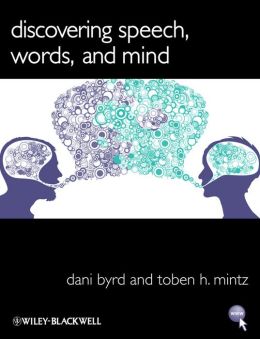(USC Phonetics Research)

Last wednesday I drove all the way out to USC in LA because Dani Byrd, the Vice Dean of student affairs at the USC Dornsife college and a professor of Linguistics at USC, was kind enough to let me interview her. Dr. Byrd specializes in phonetics, the study and classification of speech sounds. She is currently using MRI's to look at how the tongue, larynx, pharynx,vocal fold, etc. move when we talk. The video of these MRI's are actually on the USC SAIL website. She showed me the difference between the movement in the mouth when people talk in different languages. For example she played an MRI that was of her mouth while she was saying an English sentence; then she played a MRI of her colleague speaking in Tamil, an Indian dialect. I found it really interesting that you could see the back of the throat being utilized more with Tamil than it was utilized in English. It was also really hard to see each individual movement of each individual part of the vocal system because speech happens really fast; therefore, by having someone sing (Shown above) instead of talk the movement is slower and the one is able to better observe the different parts of the vocal tract being utilized. She also gave me names of some computational linguists I could contact and maybe do mentor ship with.

When I asked her what books I should read that pertain to linguistics she gave me a copy of her book (pictured to the left). I have started using this book as one of my sources. Although I am not particularly interested in phonetics, it is an important aspect of linguistics. I need to understand phonetics if I want to go into computational linguistics and especially if I want to study how one can create artificial speech. Dr. Bryd told me that studying phonetics can help us understand and even correct or help with stroke victims who loose speech abilities and natural born speech impediments. My Interview with Dr. Bryd inspired to study Linguistics to help people that have speech disabilities. Her broad knowledge of so many topics also showed me how diverse of a field linguistics is because it ranges from the hard sciences to social sciences to history and everything in between.

When I asked her what books I should read that pertain to linguistics she gave me a copy of her book (pictured to the left). I have started using this book as one of my sources. Although I am not particularly interested in phonetics, it is an important aspect of linguistics. I need to understand phonetics if I want to go into computational linguistics and especially if I want to study how one can create artificial speech. Dr. Bryd told me that studying phonetics can help us understand and even correct or help with stroke victims who loose speech abilities and natural born speech impediments. My Interview with Dr. Bryd inspired to study Linguistics to help people that have speech disabilities. Her broad knowledge of so many topics also showed me how diverse of a field linguistics is because it ranges from the hard sciences to social sciences to history and everything in between.

